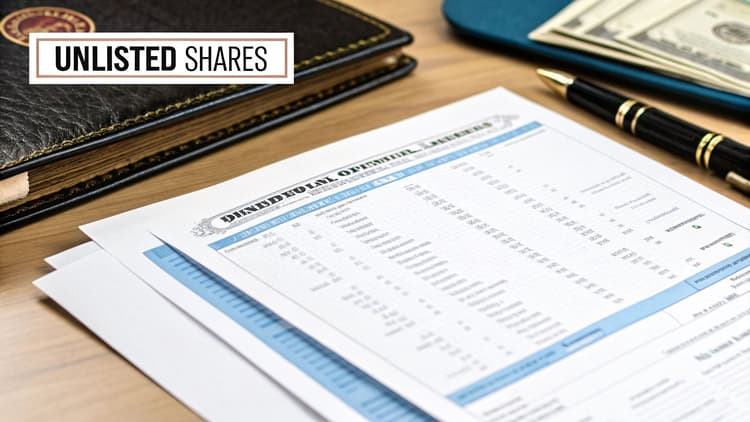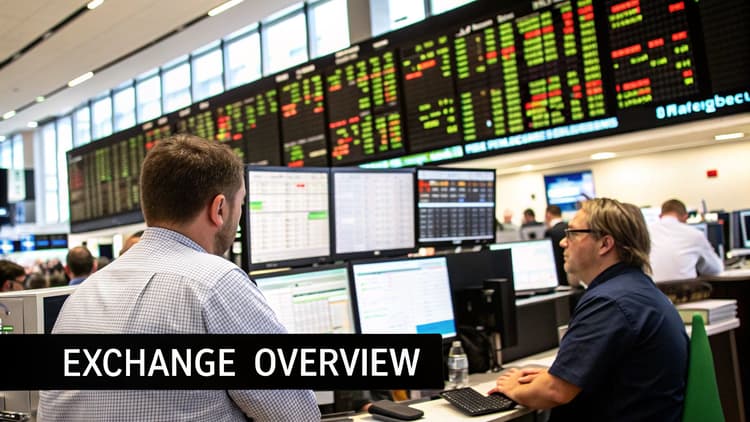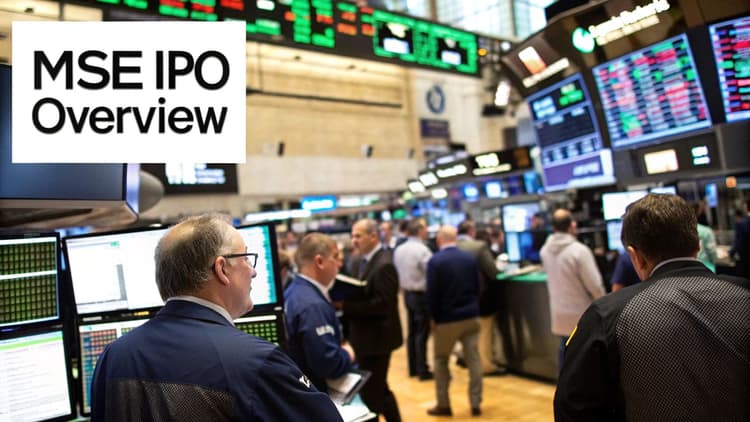
Metropolitan Stock Exchange Shares are experiencing increased investor interest as part of a broader trend in India's unlisted securities market. This surge reflects optimism about future growth and potential IPO prospects, even as investors navigate the inherent risks of the unlisted space. Careful navigation and informed decisions remain critical for success.
The Indian unlisted shares market is currently experiencing a surge in activity, with several companies witnessing increased investor appetite. Among these is Metropolitan Stock Exchange Shares, which has seen interest grow alongside other notable entities like Tata Capital and the National Commodity and Derivatives Exchange. This trend highlights an increasing confidence in the potential of these companies, particularly among investors seeking opportunities beyond the traditional stock market.
Recent data indicates a significant uptick in the number of shareholders for unlisted companies, driven by expectations of substantial gains upon eventual listing. However, it is crucial to acknowledge that investing in unlisted shares, including Metropolitan Stock Exchange Shares, presents unique challenges and risks compared to investing in listed stocks.
One of the primary attractions of Metropolitan Stock Exchange Shares is its potential for high growth and the anticipation of a lucrative IPO. However, the unlisted market lacks the regulatory oversight and transparency of established exchanges. This absence of stringent disclosure requirements can make it difficult for investors to accurately assess the company's financial health and operational performance. Comprehensive due diligence and reliance on credible intermediaries are therefore essential to mitigate risks.
To successfully navigate the unlisted market, investors should prioritize several key considerations. First, they must have a demat account to facilitate the transfer and holding of unlisted securities. Engaging with reputable digital platforms or offline dealers is also critical. These intermediaries source shares from various shareholders, including employees, early-stage investors, and sometimes promoters. Thoroughly vetting these platforms is paramount to avoid potential fraud or mismanagement.
Another challenge lies in the pricing of unlisted shares. The limited supply and high demand can lead to price distortions that do not accurately reflect the company’s underlying valuation. Investors need to be wary of inflated prices driven by speculative trading rather than fundamental value. Expert advice suggests that a measured approach, based on thorough research and realistic expectations, is essential to avoid overpaying for unlisted shares.
Moreover, investors should be mindful of settlement periods and associated costs. Opting for platforms with shorter settlement times (T+3 or T+5) minimizes the risk of price fluctuations and potential backing out by sellers. Additionally, it is crucial to understand all commission structures and hidden charges to accurately assess the true cost of investment.
Despite the inherent risks, the growing investor interest in Metropolitan Stock Exchange Shares and other unlisted companies signals optimism about the future of India's financial markets. As these companies mature and potentially transition to listed status, early investors stand to gain significant returns. However, success in this market requires a disciplined approach, a thorough understanding of the risks involved, and careful selection of reliable intermediaries.
Looking ahead, the evolution of the unlisted market is likely to drive further innovation and development in India's financial ecosystem. With the right strategies and precautions, investors can potentially benefit from the growth of promising companies like Metropolitan Stock Exchange Shares, contributing to the overall dynamism of the Indian economy.
.avif&w=128&q=75)


